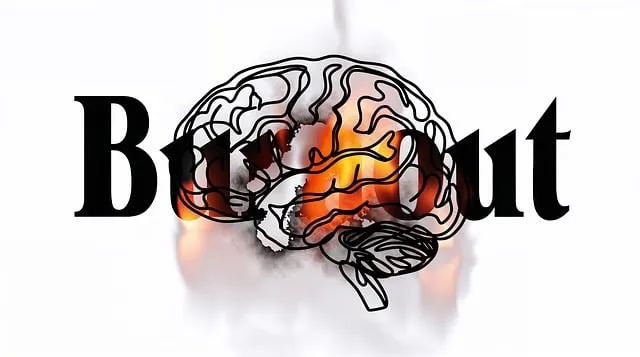Parker Kaiser Permanente's innovative approach to mental health services focuses on building resilience among healthcare professionals using the RFM framework (Reliability, Functioning, Motivation). By integrating Mind Over Matter principles and tailored exercises, they empower providers to enhance their emotional well-being, reduce stress, and improve patient care. This holistic strategy includes personalized workshops, risk assessment tools, and coping mechanisms, fostering a culture of resilience within the medical community. Through these initiatives, Parker Kaiser Permanente is revolutionizing mental health support, ensuring healthcare providers are equipped to handle challenges while maintaining optimal mental wellness.
“Resilience is a powerful tool in navigating life’s challenges, and resilience-focused methods like RFM (Resilience, Flexibility, and Mastery) are gaining traction in mental health care. This article explores how RFM, backed by research, can significantly improve mental well-being. We delve into the impact of this approach at Parker Kaiser Permanente, a leading provider of mental health services, showcasing its effectiveness. Furthermore, we examine the role of resilience-building exercises in therapeutic practices and provide insights on tailoring RFM for individual needs. Finally, we discuss strategies for integrating RFM into clinical settings.”
- Understanding RFM and Its Impact on Mental Health
- Parker Kaiser Permanente: A Leading Provider of Mental Health Services
- The Role of Resilience Building Exercises in Therapeutic Practices
- Tailoring RFM for Individual Needs and Benefits
- Integrating RFM into Clinical Settings: Best Practices and Future Directions
Understanding RFM and Its Impact on Mental Health

Understanding RFM—a concept that has gained significant traction in healthcare circles, particularly within mental health services offered by Parker Kaiser Permanente—is pivotal for promoting resilience and mitigating stress among professionals. RFM stands for Reliability, Functioning, and Motivation, each aspect representing a crucial dimension of an individual’s emotional well-being. By focusing on these elements, healthcare providers can develop effective burnout prevention strategies tailored to their unique challenges.
Reliability refers to the consistency in delivering quality care despite external pressures; functioning involves managing demands while maintaining personal integrity; and motivation encompasses the drive and enthusiasm that sustain professionals through demanding shifts. Integrating RFM into mental health practices enables the design of Stress Management Workshops Organization, aligning with Mind Over Matter Principles. These workshops can empower healthcare providers to enhance their resilience, fostering a culture of well-being within the medical community.
Parker Kaiser Permanente: A Leading Provider of Mental Health Services

Parker Kaiser Permanente stands as a beacon of hope and healing in the realm of mental health services. As a leading provider, they offer a comprehensive suite of programs designed to support individuals navigating various emotional challenges. Their expertise lies in fostering resilience, especially through innovative exercises tailored to strengthen mental fortitude.
The organization’s approach integrates evidence-based practices with a focus on positive thinking, making it an ideal destination for those seeking holistic emotional healing processes. By prioritizing risk assessment as a cornerstone of their professional services, Parker Kaiser Permanente ensures that every patient receives personalized care, addressing unique needs and promoting long-term well-being.
The Role of Resilience Building Exercises in Therapeutic Practices

Resilience building exercises play a pivotal role in therapeutic practices, especially within mental health services like those offered by Parker Kaiser Permanente. These exercises are designed to help individuals, particularly healthcare providers, develop coping mechanisms and enhance their ability to navigate challenging situations. By integrating Mind Over Matter principles, therapists can guide patients towards cultivating empathy and fostering a growth mindset—crucial components in the Burnout Prevention Strategies for Healthcare Providers.
Through carefully curated activities, resilience training empowers individuals to view setbacks as opportunities for growth, bolstering emotional strength and mental flexibility. This not only contributes to improved well-being but also enhances therapeutic outcomes. By incorporating these strategies into their practices, Parker Kaiser Permanente mental health services can better support clients in building resilience, ensuring they emerge from therapy equipped with tools to face life’s challenges head-on.
Tailoring RFM for Individual Needs and Benefits

At Parker Kaiser Permanente mental health services, we recognize that resilience isn’t a static trait—it’s developed and nurtured through targeted exercises tailored to individual needs. The RFM (Resilience, Flexibility, and Motivation) framework acts as a powerful tool in this journey. By assessing each client’s unique circumstances and goals, our professionals adapt RFM exercises to foster not just resilience, but also effective Stress Reduction Methods and Empathy Building Strategies. This personalized approach ensures that every individual receives support tailored to their specific challenges and aspirations.
Through careful consideration, we incorporate relevant risk assessment strategies for mental health professionals, ensuring a safe and supportive environment for all participants. By doing so, Parker Kaiser Permanente not only enhances the effectiveness of RFM exercises but also prioritizes the well-being of both clients and practitioners. This holistic approach underscores our commitment to empowering individuals to navigate life’s challenges with increased resilience and emotional agility.
Integrating RFM into Clinical Settings: Best Practices and Future Directions

Integrating RFM (Resilience, Flexibility, and Mindfulness) into clinical settings has emerged as a powerful strategy to enhance mental health services, particularly within the context of Parker Kaiser Permanente’s mental wellness coaching programs. This approach offers a holistic method for supporting healthcare providers’ well-being, fostering resilience against burnout, and ultimately improving patient care. By incorporating RFM techniques, mental health education programs can be designed to not only teach coping skills but also cultivate an environment that encourages adaptability and emotional intelligence.
The future directions for this integration involve refining best practices, such as tailoring RFM exercises to individual needs and providing ongoing support through peer-led groups or digital platforms. Moreover, the development of burnout prevention strategies for healthcare providers can be enhanced by combining evidence-based mindfulness practices with flexible scheduling and regular feedback mechanisms. These innovations have the potential to revolutionize mental health services, ensuring that providers feel equipped to navigate the challenges of their profession while maintaining optimal mental wellness.
Resilience, as a crucial element in mental well-being, is best cultivated through tailored exercises like those offered by Parker Kaiser Permanente’s comprehensive mental health services. By integrating RFM (Resilience, Flexibility, and Mastery) into therapeutic practices, healthcare professionals can empower individuals to navigate life’s challenges more effectively. As discussed, these exercises not only enhance resilience but also foster adaptability and a sense of control, ultimately contributing to improved mental health outcomes. Future research and clinical applications should continue to explore ways to integrate RFM into diverse settings, building on the successful models established by pioneers like Parker Kaiser Permanente in providing exceptional mental health services.






